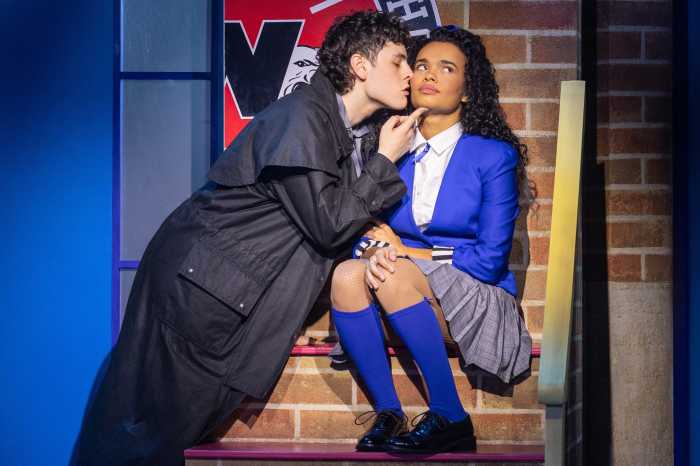
‘The Goldfinch’
Directed by John Crowley
Starring Nicole Kidman, Finn Wolfhard, Sarah Paulson
Rated R
The Pulitzer Prize-winning novel “The Goldfinch” by Donna Tartt gets precisely the sort of adaptation you would expect it to receive in its big-screen treatment.
It practically personifies awards bait, reaching for profundity and catharsis with the exact sort of big canvas emotional aesthetic and dramatic payoffs that often predicate success at the Oscars. After all, the thinking usually goes, there could be no better way to honor a beloved, acclaimed piece of written fiction than by translating it into a similarly hailed work of cinema.
Fortunately, director John Crowley (“Brooklyn”) and screenwriter Peter Straughan (“Tinker Tailor Solider Spy”) know their way around prestige material and the picture never feels like it’s blatantly calculated for golden statues.
“The Goldfinch” works when the actors and other talented people involved can breathe some life and meaning into a narrative that is relentlessly overstuffed to the point where it’s almost comical.

In the simplest possible sense, the story concerns Theo Decker (Oakes Fegley as a young teenager and Ansel Elgort as an adult) and the aftermath of a terror attack on the Metropolitan Museum of Art that he survives but his mother does not.
This horror weighs heavily on his every moment throughout the movie, coloring Theo’s experiences such as being briefly in the care of the wealthy Barbour family, headed by matriarch Samantha (Nicole Kidman), to working with the kindhearted Hobie (Jeffrey Wright) in his antique shop, among others.
It also influences his decision to lift from the rubble the painting he had been looking at with his mother — Carel Fabritius’s 1654 work “The Goldfinch,” which is actually displayed in a Dutch museum — and to keep it hidden in his possession into adulthood.
There is a lot going on in this movie, including entire subplots that simply don’t rate a mention here. It stuffs every second of its 149 minutes with plenty of drama, inflected with a relentless awareness that this is a very serious movie about very serious things.
Often, the approach is compelling. Roger Deakins’ cinematography imbues the movie with a transcendental quality that makes it seem like a polished, urbane nightmare, appropriately reflecting the overwhelming and very specific nature of Theo’s grief.

Fegley and Elgort share an understanding of Theo’s guardedness and where it emanates from, and they make him into a person that resonates not because of what he’s been through but because of how he approaches the difficult reality that he must keep on living.
Crowley manages the difficult task of maintaining dramatic tension around the painting without making it the primary focus of the events onscreen. This isn’t really the story of a painting after all, but of a boy and a man trying to make sense of the inexplicable.
Of course, everything changes when the plot takes an extremely unfortunate and convoluted turn that is best left unexamined here. Without getting into specifics, it personifies the overarching truth that the movie would have benefited from scaling down a bit and jettisoning some of the distracting side details that busy up the screen but digress from the essence of the story. If that might have cost it its place at the vanguard of the 2019 awards bait slate, well, so be it.


































